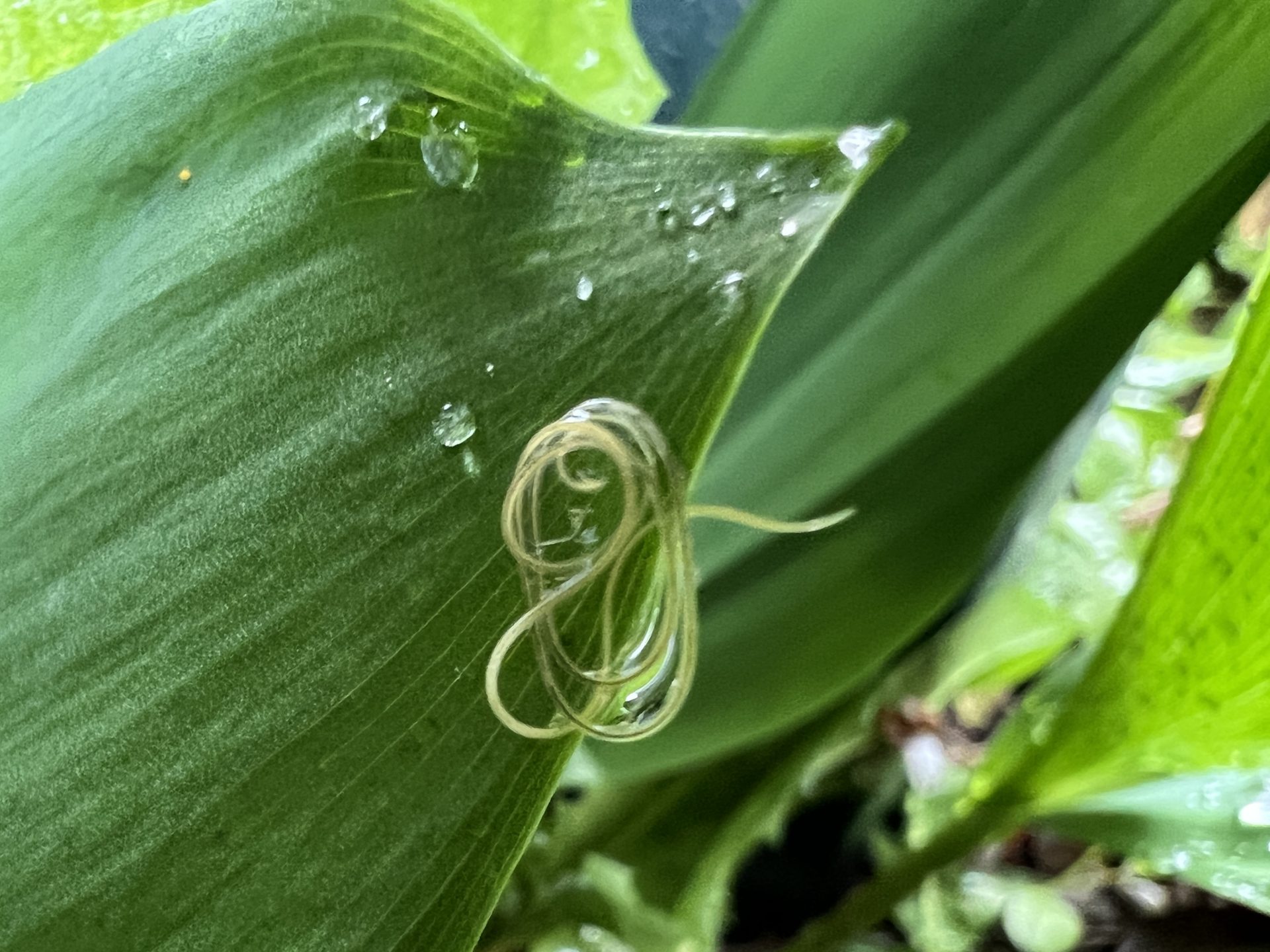
Horsehair worm (Nematomorpha) on a leaf in Toronto, Ontario, Canada, on May 20, 2023. Horsehair worms are also known as hairsnakes, or Gordian worms. The adult worms are free-living, but the larvae are parasitic on arthropods, such as beetles, cockroaches, mantises, orthopterans, and crustaceans. (Photo by Creative Touch Imaging Ltd./NurPhoto via Getty Images)
One Australian woman underwent a medical first when doctors removed a live worm from her brain in 2021. At the time, she was 64.
The neurosurgeon, Dr. Hari Priya Bandi, is behind the surgery to remove the parasitic worm. Dr. Bandi freed the 3-inch (8 centimeters) worm between the woman’s brain forceps.
The involved hospital, Canberra Hospital, tapped on a governmental scientific research agency to identify the creature, per CNN.
An animal parasitology expert determined the removed worm is an Ophidascaris robertsi. According to the Centers for Disease Control and Prevention (CDC), the adult version of these roundworms thrives in the esophagus and stomach of carpet pythons. Meanwhile, their eggs live in the python’s feces.
Though small mammals can contract the worm by ingesting its eggs, humans are considered accidental hosts.
“To our knowledge, this is also the first case to involve the brain of any mammalian species, human or otherwise, Canberra disease expert Sanjaya Senanayake said.
Dr. Bandi also spoke on the shock of removing the live worm–and establishing a medical first.
“I’ve only come across worms using my not-so-good gardening skills,” the doctor said. “I find them terrifying, and this is not something I deal with at all.”
For months, medical professionals treated and examined the woman after she arrived at the hospital in January 2021. By then, she had suffered from abdominal pain and diarrhea for three weeks. Her other symptoms included a dry cough, fever, and night sweats, per CNN.
After she exhibited forgetfulness and depression, another hospital in Australia’s capital gave her an MRI scan. Doctors could see something “unusual” in the right front lobe of her brain. After a biopsy in June 2022 and subsequent brain surgery, the unusual sight turned out to be the roundworm.
Canberra Hospital’s Senanayake says the woman was likely an accidental host of the parasitic worm. The woman reportedly lives near a lake area that houses carpet pythons in New South Wales, Australia. Experts in the elderly patient’s case believe she likely contracted the parasite while foraging a native leafy plant called Warrigal greens.
The reported hypothesis is that contaminated python feces interacted with the greens, leading the patient to cross-contaminate her food or utensils unknowingly and unknowingly consume the parasite’s eggs.
“The other message from this case is about foraging. People who forage should wash their hands after touch foraged products. Any foraged material used for salads or cooking should also be thoroughly washed.”
The worm reportedly traveled through the woman’s lungs and liver before settling in her brain, per NBC News.